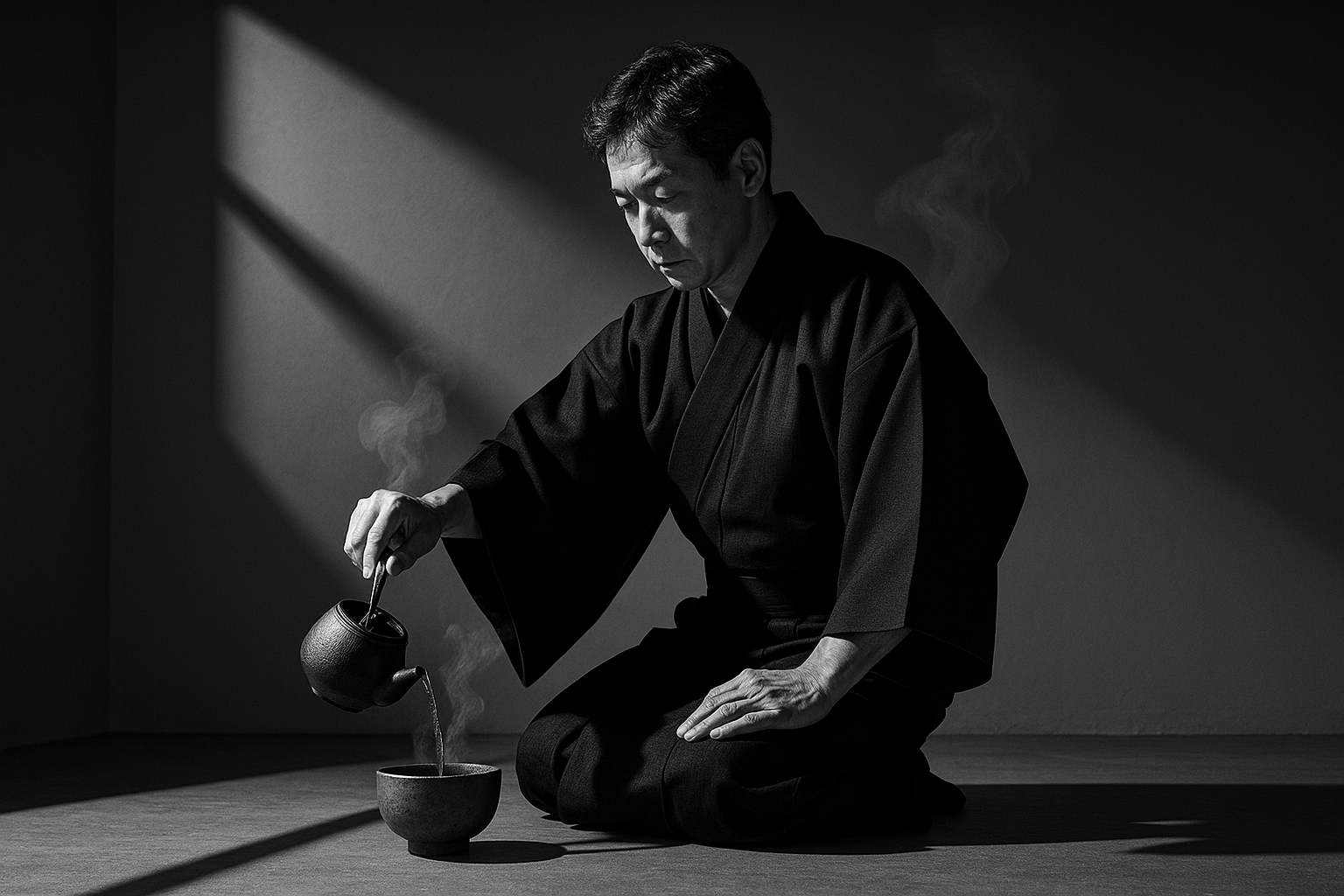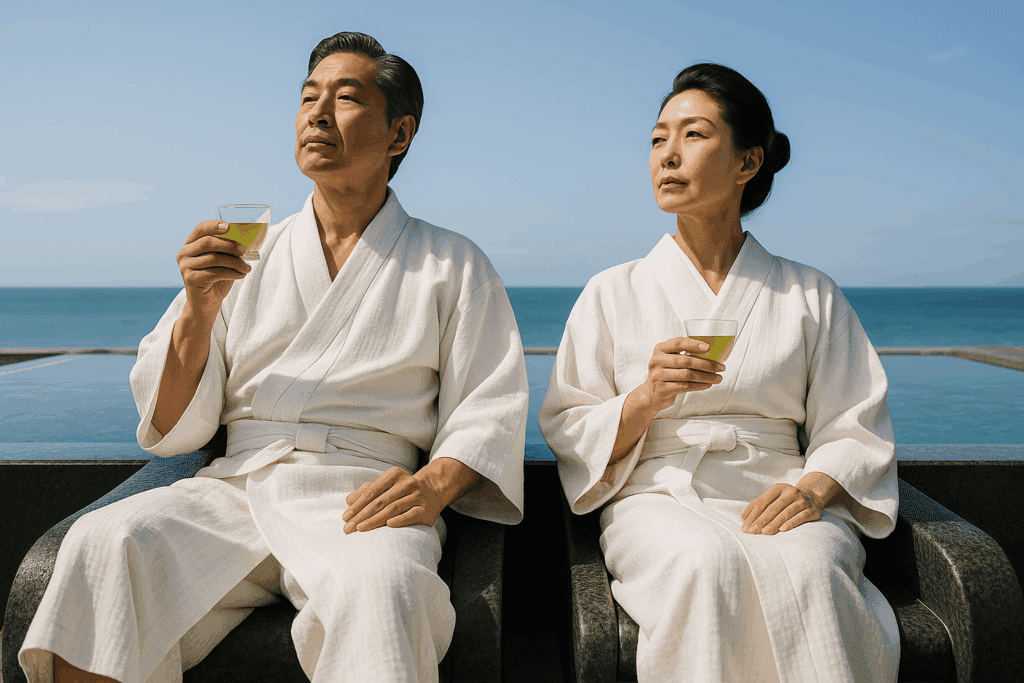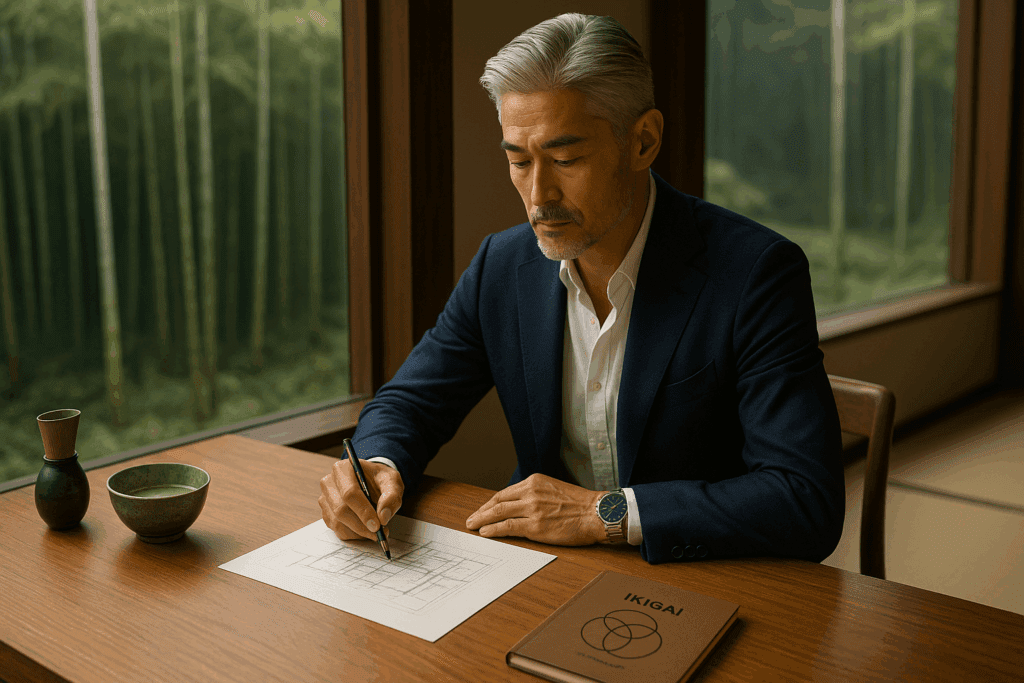8 Japanese Lifestyle Secrets for a Longer, Healthier Life
Why Japan Leads the Longevity Revolution
Japan boasts the world’s highest life expectancy (84.3 years), with Okinawa designated a “Blue Zone” where centenarians thrive. But this isn’t mere genetics—it’s a cultural mastery of habits that harmonize biology, environment, and mindset. Below, we decode eight evidence-backed practices merging tradition with modern longevity science, adapted for ambitious Western lifestyles.

1. Hara Hachi Bu: The 80% Rule
Okinawans practice hara hachi bu—eating until 80% full. This aligns with research from the NIH showing 10–15% caloric restriction slows aging by reducing oxidative stress and enhancing autophagy. Modern biohackers combine this with time-restricted eating (TRE): A 2023 Cell Metabolism study found 14-hour fasting windows improve mitochondrial function. Pro tip: Use smaller, handcrafted tableware to naturally limit portions while elevating meals into mindful rituals.
2. Movement as Daily Architecture
Japanese cities are designed for passive activity—walking to transit, gardening, or tai chi in parks. A 2022 Lancet study linked 8,000+ daily steps to 50% lower mortality risk. For desk-bound professionals, mimic this with “exercise snacks”: 5-minute desk stretches, post-meal walks, or under-desk cycling. Bonus: Integrate shinrin-yoku (forest bathing); phytoncides in evergreen trees boost NK cells by 40% per Nippon Medical School research.
3. Fermented Superfoods: Gut-Brain Longevity
Miso, natto, and pickled vegetables dominate Japanese diets, delivering probiotics shown to reduce inflammation and enhance serotonin production. A 2021 Nature study found natto’s Bacillus subtilis extends lifespan in mice by degrading amyloid plaques. Modern twist: Pair fermented foods with prebiotic fibers (konjac, seaweed) and consider spore-based supplements for gut barrier repair.

4. Green Tea’s Epigenetic Elixir
Matcha and sencha provide EGCG, a polyphenol that activates FOXO3 longevity genes. Kyoto University research associates 5+ cups daily with 26% lower mortality. For optimized absorption, add lemon juice (vitamin C increases catechin bioavailability) and avoid dairy—casein binds to EGCG. Cold-brew matcha lattes with oat milk offer a biohacker-approved upgrade.
5. Ikigai: Purpose-Driven Resilience
Okinawans credit ikigai—a reason to wake up—for their vitality. Neuroscience confirms purpose lowers cortisol and slows telomere attrition. Stanford’s Center for Longevity recommends aligning daily tasks with legacy goals. Example: A CEO might mentor startups; a parent documents family recipes. Track progress via “ikigai journals” to reinforce neuroplasticity.
6. Hydrotherapy & Thermal Rituals
From onsen baths to morning face misting, Japan leverages water’s healing power. A 2023 University of Tokyo study found 20-minute 40°C baths improve vascular function comparably to aerobic exercise. Recreate this with contrast showers (30s cold/2m hot cycles) or infrared saunas paired with NAD+ patches for mitochondrial boost.

7. Social Moats: The Power of Moai
Okinawan moai—lifelong friend groups—provide emotional and financial support, buffering stress. UCLA research shows strong social ties reduce Alzheimer’s risk by 50%. Build your moai via shared rituals: Host monthly longevity dinners, join biohacking communities, or co-invest in wellness real estate.
8. Kaizen: Micro-Progress Culture
The Japanese principle of kaizen (continuous improvement) applies to health through incremental upgrades. Instead of radical diets, focus on 1% daily gains: Swap soda for sparkling water with yuzu, add 5 minutes to workouts weekly, or practice “5-4-3-2-1” sleep hygiene. Track biomarkers via WHOOP or Oura to gamify progress.
The Synthesis of Wisdom and Science
Japan’s longevity isn’t mystical—it’s the cumulative effect of intentional living refined over millennia. By blending ancestral practices with cutting-edge science (from autophagy optimization to epigenetic hacking), we can craft personalized regimens that honor tradition while embracing innovation. Start with one ritual—a matcha morning, a moai meetup—and let compound interest work its magic. As the Okinawans say: Nuchi gusui—”life itself is medicine.”




